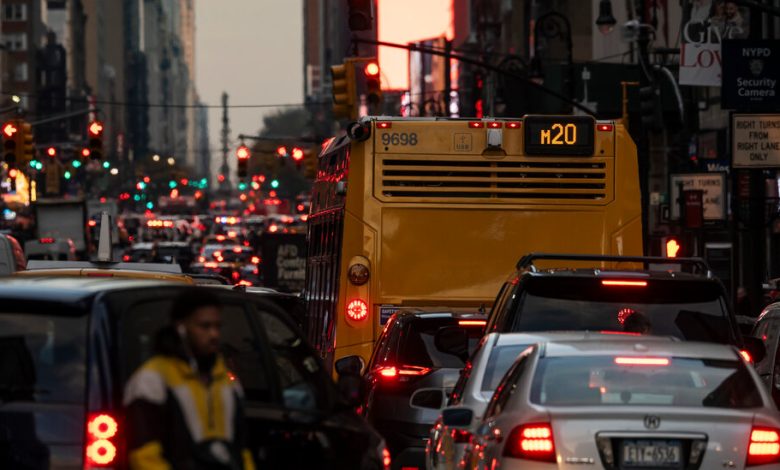Foes and Fans of Congestion Pricing Sound Off at Final Public Hearings

On Monday, hundreds of people voiced their opinions on the final day to weigh in on one of the most sweeping — and contentious — transportation projects in New York City in decades.
Transit officials held public hearings to hear feedback on the nation’s first congestion-pricing plan, which officials hope will reduce traffic in one of the world’s busiest commercial districts and raise money for public transportation. The plan, expected to take effect as soon as this spring, would charge most drivers a $15 toll for entering much of Manhattan below 60th Street.
Transit leaders have reminded opponents that the final public comment hearings were about possibly fine tuning the details of the congestion-pricing program, not debating its merits. But that didn’t stop some people from voicing their passionate disapproval.
Critics at Monday morning’s meeting at the headquarters of the Metropolitan Transportation Authority raised familiar concerns. They said the tolling plan would place a financial burden on taxi drivers; commuters who live in areas with limited public transit options would be forced to take circuitous public transit routes to Manhattan to avoid paying the toll; and several neighborhoods, including in the Bronx, Manhattan and New Jersey, would be swarmed with new traffic as motorists attempted to avoid the charge. (Taxis and ride-share vehicles won’t be charged the daily rate, but an additional $1.25 will be added to taxi fares and $2.50 to ride shares.)
Gov. Philip D. Murphy of New Jersey, speaking remotely, reiterated his opposition to congestion pricing, which he said was “not, frankly, about congestion or the environment, it is a means to solve the deficit at the Metropolitan Transportation Authority.” The $15 toll would be “backbreaking” for New Jersey commuters, he added, and would displace pollution from Manhattan to parts of New Jersey.
But supporters argued congestion pricing would make Manhattan streets safer, cleaner and less overwhelmed by traffic tie-ups.
